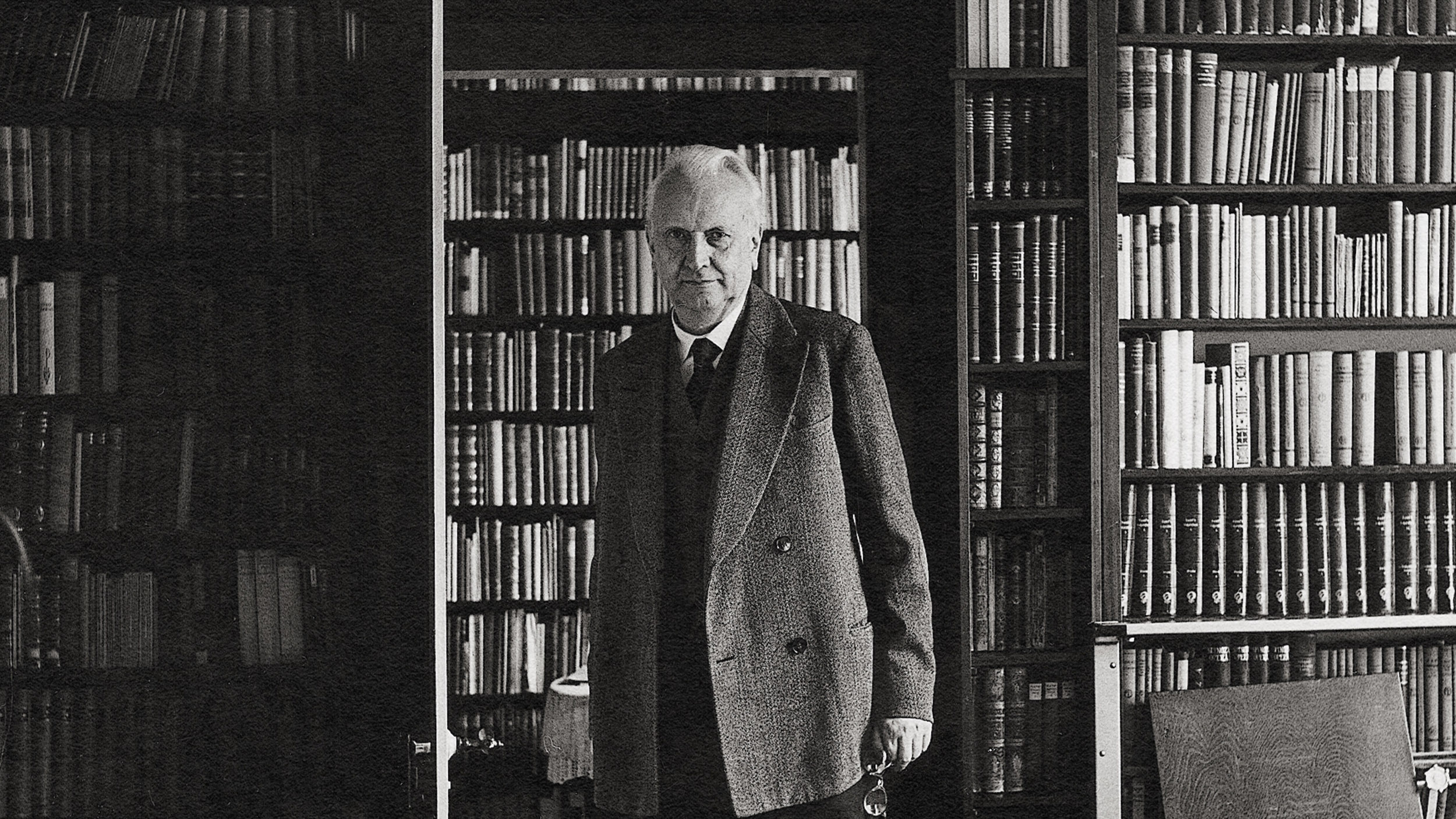The business and evangelical wings of the party may want nothing to do with each other, says Rick Perlstein, but they can “act in coalition” because they must.
Question: How will the tension between fiscal and social conservatives play out?
Rick Perlstein: Well, tactically the threat that - by conservatives, by social conservatives, by the conservative movement as they call themselves based in Washington, based in, you know, places like northern Virginia, to form a new party has always been this kind of bluff designed to, you know, bend the Republican Party to their will. And, you know, it’s usually worked because the media reports it seriously. Except for in the American context, you know, third parties very rarely work. We have a winner-take-all system. So, you know, the minute, say, Richard Viguerie, who threatens to create a third party, you know, every four or eight years because he claims that the conservatives in power aren’t really conservative - if he really did it he’d immediately be, you know, surrendering all his influence in national discussions.
So, that’s not really a serious threat. The division between let’s say corporate conservatives and religious conservatives is, you know, fascinating, interesting, rich and complex. I mean, one of the ways it worked was that traditionally - not traditionally. Basically, one of the ways it evolved in the 1970’s was that people who wanted - businesses who wanted more laissez-faire, less regulation, more control over government, more of say a “cronyist” stake in what government was actually doing, saw things like the Heritage Foundation, the Christian Coalition, the moral majority as opportunities for them to form a coalition - if you give it a generous interpretation or aggrandize their power, if you give it a little more cynical interpretation.
So, you get these fascinating movements like this war in West Virginia in 1974 by religious conservatives to kick heathen textbooks out of the schools that were sort of supposedly imposed by religious bureaucrats. It was a very local issue. It was a very localized struggle. It has a lot to do with the way politics works in West Virginia, where you have this kind of history of insurgent violence from, you know, coal miners. And you get these conservative - business conservatives in Washington at the Heritage Foundation realizing that this is an organizing opportunity for them. The Heritage Foundation sends representatives down West Virginia and helps put these people in touch with national ideological entrepreneurs, with people like Richard Viguerie. And that’s how a coalition forms that basically creates foot soldiers for an agenda that the West Virginia religious conservatives may or may not be a supporting, but eventually they’ll come to support and it’s - there’s both an inherent tension and instability in it, but there's also within American Protestantism a real strain of pro-capitalism and individualism.
So, it’s, you know, it’s interesting, it’s rich, it’s tense, sometimes it works, sometimes it doesn’t work and right now we’re, you know, at a real knife’s edge about whether it’s going to work or whether it’s going to fall apart.
Question: Has the religious side of conservatism become more powerful than the corporate side?
Rick Perlstein: You know, the CEO of say an aerospace corporation might not want to have anything to do with demonic possession, you know, in Pentecostal churches, but he needs the people who have those great passions in order to kind of anchor the conservative coalition. So the question is, when have they created a Frankenstein’s monster? When have they created something that they can’t control? You're seeing more and more indications by - from conservatives of, you know, that kind of embarrassment.
You know, I was out the other night and a West Point grad, a banker friend, who’s a conservative - he calls himself a country club conservative, and said, “I have nothing to do with those Sarah Palin people.” Well, the problem is, without those Sarah Palin people the Republicans would never win an election. So, you know, they find themselves on the horns of a dilemma and the ideological entrepreneurs on the religious right who, you know, let’s face it, have an interest in aggrandizing their power and their control don’t really have any incentive to modify or moderate their positions. In fact, they're more likely to aggrandize their power and their influence by maintaining a front of purity.
So, you know, that speaks to the whole tension and paradox behind the conservative project right now. All the people who’ve ascended to positions of power and leadership - and Rush Limbaugh is a perfect example, even though he pretty much unites the, you know, religious and business conservatives pretty seamlessly - have achieved their influence, have achieved their power through a certain kind of cultural style based on their willingness to say that compromise is inherently bad. And then it gets back to the question of whether Obama can, you know, negotiate with the 20 million people who listen to Rush Limbaugh every day and consider any compromise a betrayal of America’s promise itself. Right?
So, there's no incentive for a Rush Limbaugh to change because this is what’s given him this, you know, these 20 million listeners, you know, his mansion that has a, you know, a replica of the hall of mirrors at Versailles. So, when, you know, the Republican National Committee or a train of conservative Republicans wish to moderate the image of their party to make it seem more centrist and palatable to swing voters try and do that, Rush Limbaugh is able to not merely survive, but thrive by disdaining them.
Question: What’s a modern example of synergy between corporate and religious conservatives?
Rick Perlstein: Well, healthcare is a fascinating example of this question of how religious conservatives and business conservatives can act in coalition. You know, being on the mailing list of, you know, the American Family Association, Don Wildmon’s organization, I’m beginning to, you know, get the emails saying that, you know, healthcare - that, you know, basically, a national healthcare program is an imposition on Christians. You know, it’s going to fund abortions. It’s going to violate the sanctity of the traditional family. So, you see a pure example of kind of a right-wing Libertarian business conservatives using the leaders of the religious right in quite an effective way to, you know, undermine a mass constituency for a reform which, in the end, is actually quite conservative. I mean, what could be more, you know, what could be more judicious than, you know, like I said, letting people change their jobs if they have an entrepreneurial idea? What could be more strengthening of the traditional bonds of family and society than families not going bankrupt because someone in the family gets sick?
But, you know, there are very powerful interests who, you know, basically benefit from the status quo, and they're able to take advantage of this preexisting distrust that’s, you know, very American of anything having to do with an expanding state. And again, historically it’s the same thing you saw with Social Security. It’s the same thing you saw with Medicare. It’s the same thing you saw with the idea that the United States in the 19th century should have a central bank. You know, the same thing you saw when the government began talking about financing internal improvements like canals, the interstates, you know, which were seen as a Communist plot by some people.
So, the challenge for progressives, the challenge for people who believe that this is not only an important goal but an imperative goal, national healthcare, is not to imagine that this kind of irrational fear is going to go away, but simply to bull through it. Force healthcare down people’s throats whether they want - whether they like it or not, and watch what happens ten, twenty, thirty, forty years from now when, again, conservatives come to power promising to uphold the ideals of Obama’s healthcare program just like George Bush promised to uphold Social Security and promised to honor FDR, and just like conservatives of every generation - or I should say reactionaries of every generation say, “Well, the liberals that we’re dealing with now are unacceptable extremists. The ones we had last generation weren't so bad.”
Recorded on: October 19, 2009





